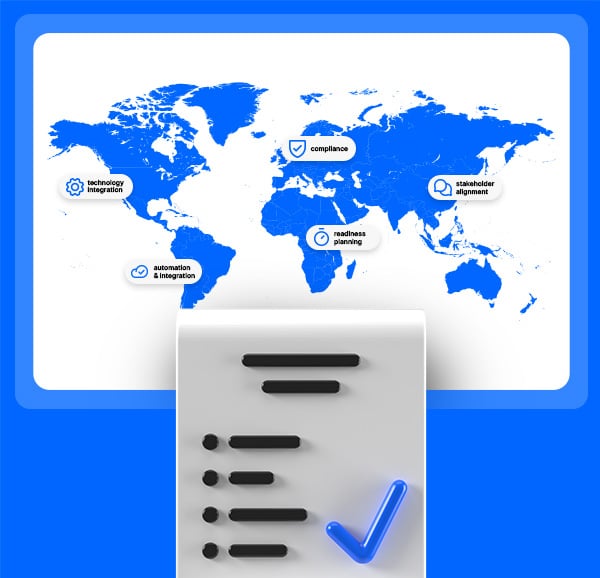Known as the Land of Fire and Ice, Iceland is a small but prosperous Nordic country with a particular emphasis on freedom and equality for all citizens. A favorite destination for viewing the beautiful Northern Lights, Iceland’s climate is milder than many visitors may expect, given its name and location. Although the country suffered considerably during the 2008 financial crisis, it has rebounded with a growing GDP of $23 billion for its 335,000 citizens in 2017. Supported primarily by fisheries, manufacturing, and related industries, Iceland’s economy is highly export-driven, with an emphasis on marine products and goods for the fishing industry.
Iceland’s precise tax system can make payroll regulations appear complicated, with workers paying a large share of their income to several government offices, including the municipal authorities. Many multinational companies would be advised to seek out an experienced international payroll solution, as ensuring full compliance from the beginning can help to establish goodwill between business leaders and officials.
Business Basics
The process of getting started as a business in Iceland can vary widely depending on the type of company being established: LLC, co-op, corporation, or sole proprietorship. To register as an LLC, a business will need to contact the Register of Limited Companies with their prepared memorandum of association, which must include the articles of association, stock price for shareholders, and requisite financial information.
Businesses are required to open in-country bank accounts, which can generally be established within four weeks. Iceland is welcoming to foreign business entities, so companies can expect a simple and straightforward setup process. Companies must also go through the Population Registrar to receive an official ID number, and local government officials will help identify which licenses and permits are needed. Finally, businesses will need to report all earnings to the country’s Tax Department.
Employment Law & Employment Rights
The standard work week in Iceland is 40 hours, with all work including overtime generally limited to 48 hours per week. Overtime is paid per hour at a rate of 1.0385% of regular monthly wages, although salaried workers will typically take additional time off in lieu of overtime pay.
With two months of commencing work, employers must provide workers with a written contract of employment stating the basic terms of work, including location and wages. Trial periods are allowed but may not last longer than three months. All workers in Iceland have access to unions, and collective bargaining is heavily relied upon to determine working conditions and wages. However, collective agreements are accepted as base terms for employment, and employees may negotiate additional terms or compensation in their individual agreements.
Compensation & Services
While Iceland has no government-mandated minimum wage, compensation minimums allowed by occupation are determined by collective bargaining agreements and applied to all qualifying workers, regardless of union membership. An average monthly income of 310,000 ISK (approximately $3,100 or €2,500) places Icelandic salaries among the most competitive in Europe. Employees who have worked at least 12 weeks within the past 12 months for the same employer are entitled to a December bonus, paid by the 15th of December, and those who have worked at least 12 weeks of the vacation year (which ends April 30) are entitled to a vacation bonus. Icelandic employees may not be forced to work on holidays, but employers are allowed to request they do so. Employees are typically paid monthly on the first of the month and must be given a payslip with full itemized details of payment and deductions.
Tax Requirements & Withholding
Taxes are generally withheld from employee paychecks based on their total salary. All workers are required to pay both state and municipal income taxes. Rates range from about 37% at the low end to more than 46% at the high end. These percentages are divided between the state and municipal tax offices, with the majority going to the state. Pension premiums are allowed to be deducted from the salary tax-free. Employees also pay social security on their earnings at a rate of about 7.7%. The corporate income tax rate for limited liability companies and limited partnership companies is 20%, while other legal entities, such as partnerships, are assessed at a rate of 37.6%.
Time Off & Paid Leave
Iceland celebrates 15 official public holidays. Additionally, employees are entitled to two days of vacation for every month worked, for a total minimum holiday allowance of 24 days per year. Time off is typically taken between May and September, although collective bargaining agreements may stipulate alternate vacation periods. Employees are also entitled to two full days of sick time for every month worked during the first year of employment. After the first year, workers can take off up to one month at full wages.
New mothers and fathers receive three months of leave each, paid at 80% salary by the government. An additional three months at 80% are available for the new parents to split as they choose, giving new parents a possible total of nine months leave to spend with their new child.
| Public Holidays in Iceland | |
| January 1 | New Year’s Day |
| Thursday before Easter | Maundy Thursday |
| Friday before Easter | Good Friday |
| Varies | Easter Sunday |
| Monday after Easter | Easter Monday |
| Thursday after April 18 | First Day of Summer |
| May 1 | May Day |
| 40 days after Easter | Whit Monday |
| June 17 | Independence Day |
| 1st Monday in August | Commerce Day |
| December 24 (afternoon) | Christmas Eve |
| December 25 | Christmas Day |
| December 26 | St. Stephen’s Day |
| December 31 (afternoon) | New Year’s Eve |
The Whole Picture
While many customs in Iceland may take larger international companies some time to get used to, it’s important to acknowledge that the success of Icelandic society is underpinned by the strength of its culture and specifically its commitment to include and support everyone living there. Those who choose to do business in Iceland will find themselves in the midst of a truly industrious, honest, hard-working citizenry, who may be guided by collective bargaining but still foster a high sense of loyalty to their employers. In order to ensure both timely and accurate payslips for Icelandic employees, multinationals may be wise to consider a global payroll solution that can help ensure compliance with both local and state regulations.


